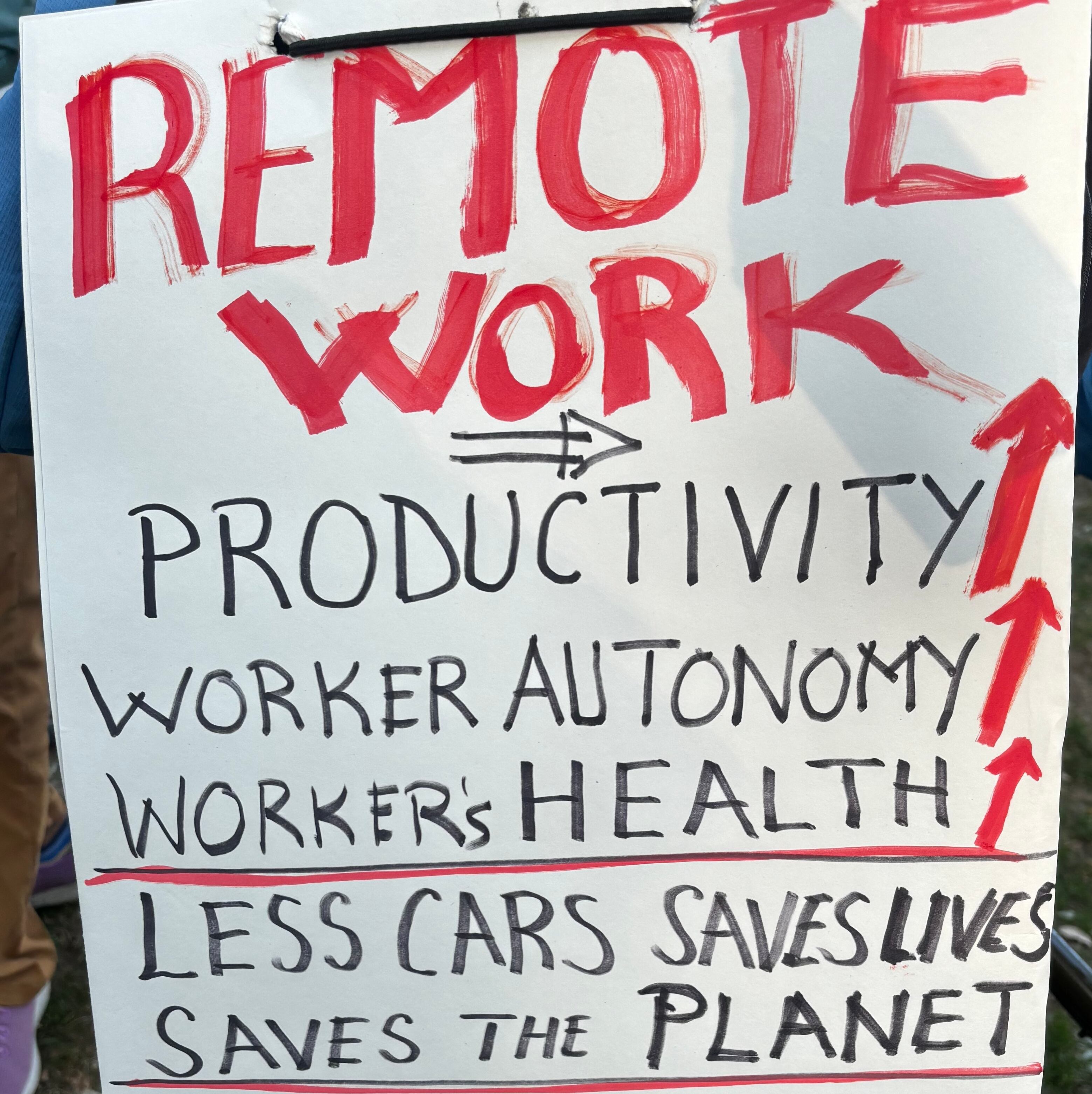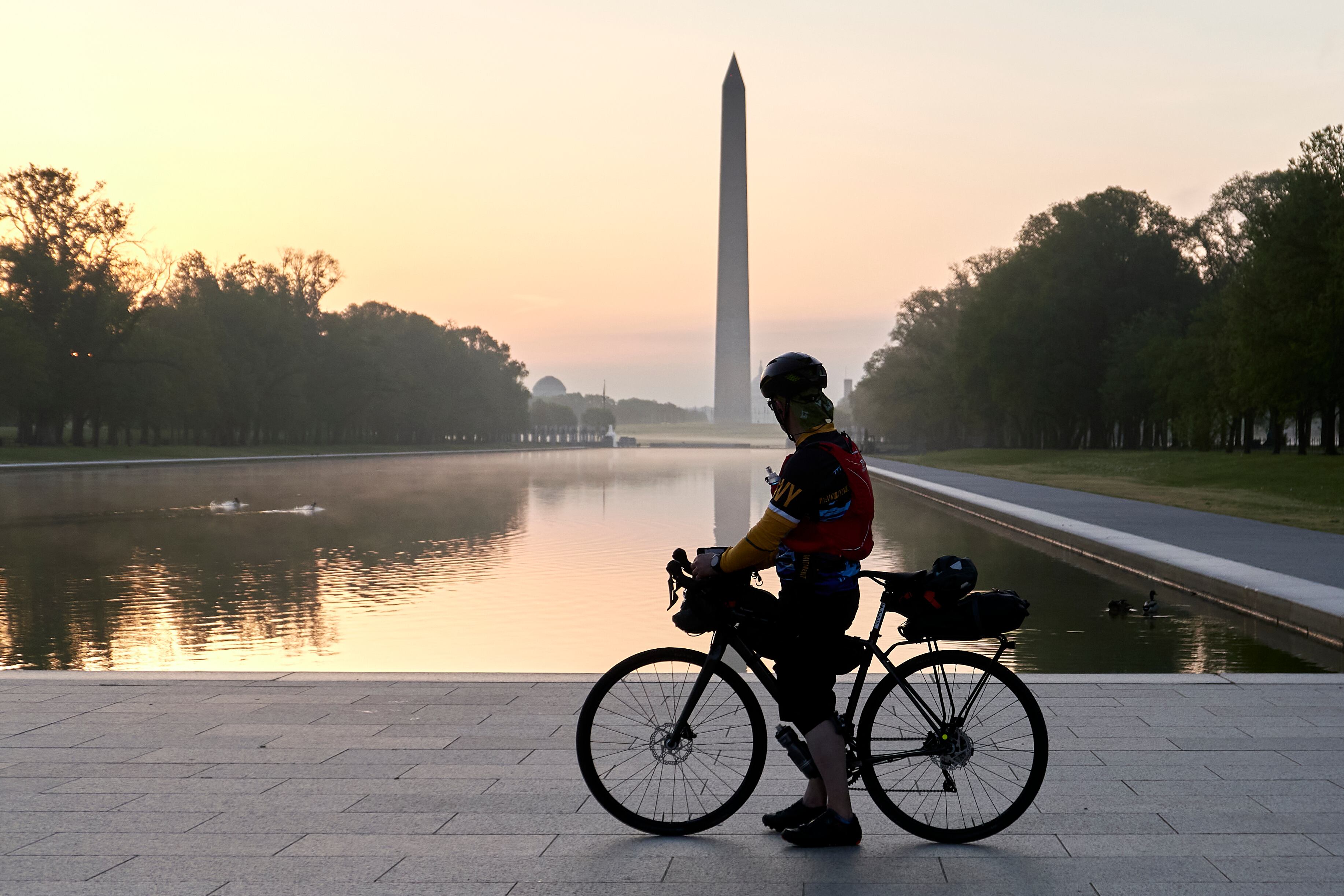As many federal employees are getting called back to offices, a group of about two dozen or so had a simple request on Wednesday: let us commute how we want to.
Decked out in colorful helmets or slick looking cyclist jackets, workers and local advocates gathered in Dupont Circle to call for more bike friendly routes for the more than 160,000 federal workers in D.C.
Employees who want to avoid city traffic, save on gas and have a more enjoyable commute are saying biking to work is a viable option, though some routes are safer than others.
“It’s a huge barrier honestly right now to be able to bike to work and back in the most direct route. I can take much more circuitous routes and get there, but that almost doubles my commute,” said Matthew Steil, a U.S. Forest Service employee who has been bike commuting for years. “Getting that infrastructure in place is really important for a lot of us here.”
Another government worker said having consistent bike protections on major streets may also encourage wary bikers to ride.
“I started bike commuting from my home in Prince George’s county to my office in D.C. in 2015, and I really would’ve liked to have started earlier, but I was a little intimidated by traffic,” said Dan Baron, a federal employee of 10 years.
With telework options dwindling at some agencies, it’s a natural time to be calling attention to commuter issues, the event organizers said.
If federal employees are reporting more frequently on site, they should have safe ways to do so, said Jeremiah Lowery, advocacy director for the Washington Area Bicyclist Association.
“We don’t want everybody driving,” he said. “We don’t want everybody crowded into the metro. We want some people walking, some taking public transportation. We want some folks biking. Because that’s how you really build a world-class multimodal city.”

Even with more than 100 miles of bike lanes and trails in D.C., some bikers feel vulnerable in some busy parts of the city. The din of a driver laying on the horn at a pedestrian crossing the road spoke to the often intense traffic situation that’s a routine part of city life. D.C. has one of the highest rates of non-car commuting in the country, meaning any given street could be a melange of buses, scooters, bikes, pedestrians and other transit.
And earlier this month, a 24-year-old graduate student at George Washington University was struck and killed by a car while he was bicycling, local outlets confirmed. Bicycle and pedestrian fatalities rose 37% in 2022 over the year before, making up roughly a third of total traffic deaths in the Capital region, according to data by the Metropolitan Washington Council of Governments.
When compared to other cities, however, Washington D.C. ranks high for bike friendliness, according to a study from real-estate data company Clever. Still, despite the diversity of transportation options and use, the overall share of D.C. commuters who choose to drive has not changed much over the years, according to a 2022 Brookings Institute report.
Many of the attendees recounted incidents of near-misses while roadsharing with cars. Even with some wins for new bike lanes around the city in recent years, there’s still work to be done.
“We’re not there yet, but things are improving,” Stiel said. “One of the problems is that those of us who live in Ward 3, we have virtually no bike infrastructure.”
In 2021, D.C. Mayor Muriel Bowser announced that a nearly three-mile stretch of Connecticut Avenue, which connects the heart of the district to neighborhoods in its northwest corner — would be updated with protected bike lanes.
Advocates for that project at the rally said that has been fraught with delays since the initial study was done in 2019.
Final concept designs are due by the end of this year, Axios first reported in April.
“The prospect of putting in a bike lane on Connecticut Avenue would really bolster the ability for a lot of us to get to the office safely,” Stiel said.
Some federal agencies, like the Department of Transportation and Health and Human Services, have offered commuter benefits for bike riders. These programs allow employees to reimburse associated costs up to $20 a month.
Molly Weisner is a staff reporter for Federal Times where she covers labor, policy and contracting pertaining to the government workforce. She made previous stops at USA Today and McClatchy as a digital producer, and worked at The New York Times as a copy editor. Molly majored in journalism at the University of North Carolina at Chapel Hill.
In Other News




